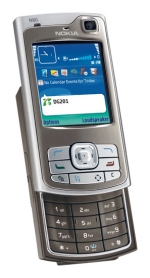 The move to shift from multi-level communications and incorporating Unified communications such as VoIP and other unified platforms has become the prime targets of hackers who are now turning to IM attacks as their targets. Offices have de-centralized communications and other systems combining them into one system that is capable of handling communications eliminating the need for maintaining several systems each with its specific function. IM or Internet Messaging is cheaper and allows office workers in the field to communicate cheaply with the office and VoIP allows them to communicate cheaply over vast distances.
The move to shift from multi-level communications and incorporating Unified communications such as VoIP and other unified platforms has become the prime targets of hackers who are now turning to IM attacks as their targets. Offices have de-centralized communications and other systems combining them into one system that is capable of handling communications eliminating the need for maintaining several systems each with its specific function. IM or Internet Messaging is cheaper and allows office workers in the field to communicate cheaply with the office and VoIP allows them to communicate cheaply over vast distances.
Unified communications is the next step towards virtualization which is currently being developed and tested by various developers. IM is one of the most convenient means of communications which has the capability to receive mail from all over just as SMS or Text messaging has done in the Mobile Industry. Every user who uses the internet may have one or more IM accounts with the many free mail providers or through their company hosting service. Using the IM allows hackers to send malware, unload their payloads and go on to propagate through the networked system, which if looked at from a business perspective crippling one of the vital communications links. There are still mobile phones and other means communications but being ever present at every desktop, any unsuspecting user can download malware without proper intrusion prevention and detection systems in place. Mobile phones have also suffered attacks from malware that is designed to attack stripped down versions of popular Operating systems, the forays of hackers into unified communications may mean they are keeping pace with the development of new technologies as fast as businesses adopt them and accept them as just part of the game.
VoIP Going Mobile
 Several companies are attempting to apply Voice over Internet Protocol (VoIP) to mobile phones. T-mobile announced that they are going to launch mobile wi-fi cellular hybrids by the end of the year. Once these phones detect a Wi-fi connection they will automatically switch to the Wi-fi and connect calls through VoIP without interruptions.
Several companies are attempting to apply Voice over Internet Protocol (VoIP) to mobile phones. T-mobile announced that they are going to launch mobile wi-fi cellular hybrids by the end of the year. Once these phones detect a Wi-fi connection they will automatically switch to the Wi-fi and connect calls through VoIP without interruptions.
Companies used VoIP technology to make calls are increasing, cutting down the cost of long-distance calls, but so far it’s been limited to office or home use. Cellular phone companies like Nokia have launched the N80 Internet Edition, their latest products with mobile phone-based VoIP. The road to this conversion has not been smooth, however. Last month major VoIP company Skype announced that there will be delays for their plans to expand their services to mobile phones due to technical difficulties and the lack of compatible handsets. But it’s certainly only a matter of time before users get a wide variety of VoIP-related services on their mobiles.
VoIP may end up being cheaper than conventional mobile calls, but the same security concerns that plague VoIP will apply to this developing technology. There are still encryption issues for the data packets sent over the Internet, and the possibility of having calls eavesdropped or even rerouted by attackers. The worst posssiblity would be a denial of service (DoS) attack that can degrade call quality or completely crash the end service. So far there has been no clear-cut solutions to these problems, and users must be aware that these security issues exist.
[tags]voip, mobile. security[/tags]